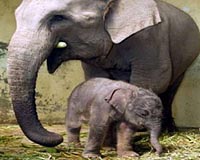 |
Paris, France (SPX) Nov 04, 2010 A new analysis of several major global studies of future species shifts and losses foresees inevitable continuing decline of biodiversity during the 21st century but offers new hope that it could be slowed if emerging policy choices are pursued. Led by experts Henrique Miguel Pereira and Paul Leadley, the 23-member scientific team from nine countries, under the auspices of DIVERSITAS, UNEP-WCMC and the secretariat of the CBD compared results from five recent global environmental assessments and a wide range of peer-reviewed literature examining likely future changes in biodiversity. Published in the journal Science, the analysis found universal agreement across the studies that fundamental changes are needed in society to avoid high risk of extinctions, declining populations in many species, and large scale shifts in species distributions in the future. Says Dr. Leadley, of the University Paris-Sud, France: "There is no question that business-as-usual development pathways will lead to catastrophic biodiversity loss. Even optimistic scenarios for this century consistently predict extinctions and shrinking populations of many species." He notes that the target of stopping biodiversity loss by 2020 "sounds good, but sadly isn't realistic." Among the brightest spots of hope: recent scenarios show that slowing climate change and deforestation can go hand-in-hand to reduce biodiversity loss thanks to "significant opportunities to intervene through better policies, such as those aimed at mitigating climate change without massive conversion of forests to biofuel plantations" says Dr. Leadley. But action must be taken quickly, as the study indicates the window of opportunity is closing rapidly, as differences in policy action taken now could either lead to an increase in global forest cover of about 15% in the best case or losses of more than 10% in the worst case by 2030. The authors say the creation of an Intergovernmental Panel on Climate Change (IPCC)-like mechanism for biodiversity (to be called the Intergovernmental Platform on Biodiversity and Ecosystem Services - IPBES) is "extremely important" for achieving commonly-agreed definitions and indicators for biodiversity and to inform decision making. "The issues are so urgent and the stakes for humanity so important, scientists need to coalesce through the IPBES to inform policy-makers with a unified, authoritative voice," states Dr. Pereira, of the Universidade de Lisboa, Portugal. IPBES could also play an important role in organizing the scientific co-operation to reduce uncertainty in biodiversity scenarios. Models foresee extinction rates ranging from less than 1% per century (close to the current rate of extinctions) to more than 50%. "The degree of both land use and climate change explains a substantial fraction of the range of projected extinctions, but incomplete understanding of species ecology is also an important source of uncertainty," says Dr. Leadley. Among the key issues is the lack of consensus defining the length of time involved in species' extinction - which may be decades or millennia - leading to "considerable uncertainty in models and substantial disagreement within scientific community concerning the likelihood of massive extinctions over the coming century." Furthermore, the researchers note that changes in species distributions and population sizes should receive more attention because they are likely more critical to human well-being and better short-term indicators of the pressures of humans on ecosystems. For example the continuing overall decline in populations of large-bodied fish species due to over-fishing, the poleward migration of marine species at a rate of more than 40 km per decade due to climate change, and the 10 to 20% decline in the abundance of terrestrial species by mid-century primarily due to land-use change. The analysis also concludes that the difficulty of trade-offs between meeting human wants and needs and protecting biodiversity is likely to intensify. "Future extinctions risks are projected to be high, but the biodiversity crisis is much more than extinctions," says Dr. Pereira. "Much of what will happen to biodiversity in 21st century is not global extinctions, but major changes in the abundance of species and the composition of communities".
Share This Article With Planet Earth
Related Links Diversitas Darwin Today At TerraDaily.com
 Elephant smuggling gang busted in India
Elephant smuggling gang busted in IndiaGuwahati, India (AFP) Nov 3, 2010 Police in northeast India said Wednesday they had busted an elephant smuggling racket which is suspected of selling nearly 100 animals across the country and to Nepal. Two elephants, a mother and a calf, were seized when a police team swooped on a truck travelling across the state border from Assam to West Bengal at the weekend. "The ringleader of the gang was arrested in Guwahati (Assam ... read more |
|
| The content herein, unless otherwise known to be public domain, are Copyright 1995-2010 - SpaceDaily. AFP and UPI Wire Stories are copyright Agence France-Presse and United Press International. ESA Portal Reports are copyright European Space Agency. All NASA sourced material is public domain. Additional copyrights may apply in whole or part to other bona fide parties. Advertising does not imply endorsement,agreement or approval of any opinions, statements or information provided by SpaceDaily on any Web page published or hosted by SpaceDaily. Privacy Statement |